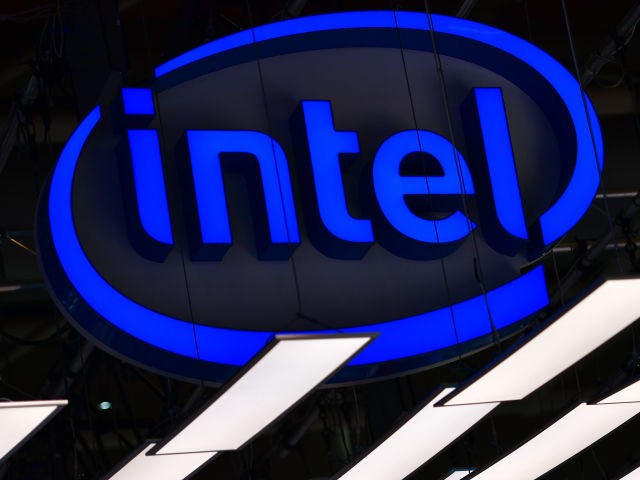U.S.-based chip manufacturer Intel announced on Tuesday it has suspended business operations in Russia, becoming the latest Western corporation to distance itself from Russia after its invasion of Ukraine. Intel is still doing business with Russia’s genocidal ally China, however, and was a sponsor of the Beijing Winter Olympics.
Intel condemned the attack on Ukraine and suspended shipments to Russia and Belarus on March 3. The company said it was “working to support all of our employees through this difficult situation, especially those with close ties to this region,” and had already raised over $1.2 million for relief efforts.
On Tuesday, Intel said it continues to “join the global community in condemning Russia’s war against Ukraine and calling for a swift return to peace” and has therefore “suspended all business operations in Russia.”
“We are working to support all of our employees through this difficult situation, including our 1,200 employees in Russia. We have also implemented business continuity measures to minimize disruption to our global operations,” the Intel statement said.
Intel is one of about 600 companies worldwide to pull out of Russia since the invasion of Ukraine began. Some of those companies canceled expansion plans or restricted exports to Russia, while others shut down their operations completely. Many of the pullouts are big names in the tech industry, including Apple, Microsoft, Oracle, and IBM.
The Russians are increasingly turning to their partner in tyranny, China, for alternative supplies of high-tech products. An executive of Russia’s National Card Payment System said on Tuesday his operation is “looking for new microchip suppliers” for its bank cards and has “found a couple in China, with the certification process ongoing.”
The U.S. government has warned Chinese tech companies they could face sanctions if they defy export restrictions on Russia, possibly including loss of access to the American-made components and software used in Chinese tech manufacturing.
TechCrunch reported on Monday that Russian IT workers are attempting to flee the country as the tech industry collapses, with at least 70,000 of them gone by the end of March. Some fear they will be conscripted into the war effort, while others complain their jobs are in danger of vanishing as international blockades on parts, software, and online services render Russian computer systems useless.
According to TechCrunch interviews, Russian IT workers also appear to be resistant to the invasion of Ukraine because they have constant contact with associates who live there. One Russian IT specialist recounted the final message received from a colleague in the devastated Ukrainian city of Mariupol: “I have no money left. I’m looking out the window and see mobile crematoria approaching my house.”
The Russian government is evidently gearing up to block the next wave of tech refugees, citing national security concerns and keeping “the motherland’s secrets in the motherland.” Tech workers report increased scrutiny from Russian security services, including efforts to monitor their electronic communications.
Like other Big Tech companies declaring they can no longer do business with Russia after the invasion of Ukraine, Intel is still working with China despite its persecution of the Uyghur Muslims, Tibetans, and other minorities.
At a Senate hearing two weeks ago, Intel was lambasted for issuing a groveling public apology to its “cherished Chinese partners” for daring to criticize forced labor in Xinjiang, the occupied region where the genocide of the Uyghur people is currently underway.
Intel executives also seem untroubled by the possibility of China invading Taiwan, even though one of Intel’s crucial suppliers, TSMC, is headquartered there.
Intel was a sponsor of the disastrous 2022 Beijing Winter Olympics, and like other corporate sponsors, it kept quiet about China’s appalling human rights record. Intel did, however, state during congressional hearings before the Olympics that it would not “do business in Xinjiang.”

COMMENTS
Please let us know if you're having issues with commenting.